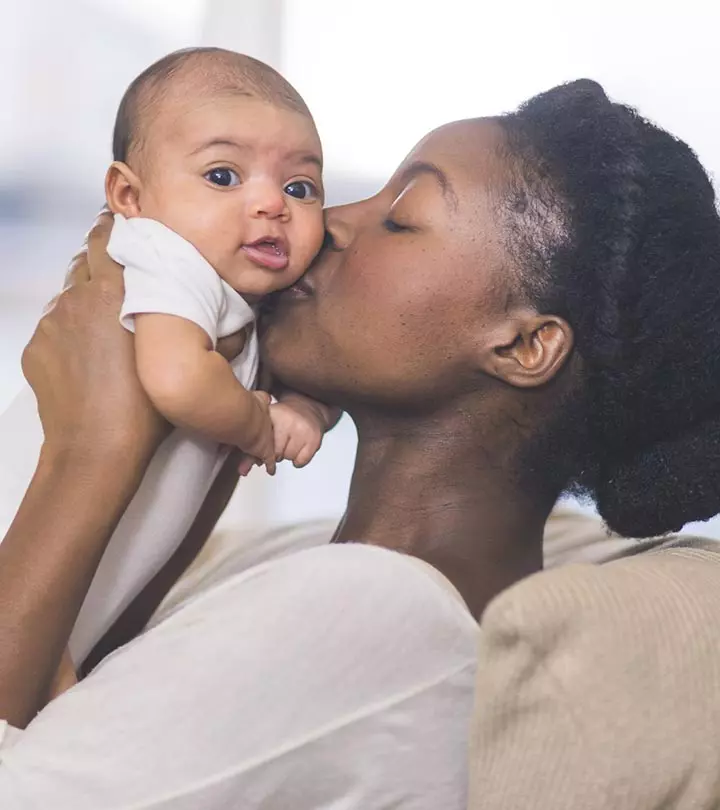

Image: iStock
Are you expecting? That’s wonderful news for you and everyone in the family. Once you are into a few weeks of pregnancy, you begin to feel the changes not just in your tummy but also in your face, mood and general well-being.

We have all heard our grandmothers and other experienced mothers saying things such as, if your face glows you will have a girl baby, if your tummy is small you will have a boy, and if the baby is kicking too many times, then he must definitely be a boy and many such observations.
They might not have been aware of the scientific facts behind that, but they were right to a certain extent. Your body reacts differently based on the fetus’ sex. Not convinced? Well, a recent study in the US has come up with the fact that the sex of the fetus impacts the mother’s immune system during pregnancy. Let’s understand why this happens.
According to the researchers at the Ohio State University Wexner Medical Center, women carrying female fetuses have a greater inflammatory response to bacteria than those pregnant with a male fetus. This is because the former produce more pro-inflammatory cytokines (small proteins secreted by the cells of the immune system).
Amanda Mitchell, the principal investigator of the study, says: “While women didn’t exhibit differences in blood cytokine levels based on fetal sex, we did find that the immune cells of women carrying female fetuses produced more pro-inflammatory cytokines when exposed to bacteria. This means that women carrying female fetuses exhibited a heightened inflammatory response when their immune system was challenged, compared to women carrying male fetuses”.
The findings of the study, which covered 80 pregnant women throughout their pregnancy, were published in the journal Brain, Behavior and Immunity.
Inflammation is a way of immune response to heal wounds, and fight viruses, bacteria and chronic illnesses. However, too much inflammation can lead to cramps and fatigue, and even asthma.
A previous study (1) has found that women carrying a boy have higher chances of a Caesarean section than those with a girl. The other findings of the study were:
- Women with male fetuses had higher rates of gestational diabetes mellitus.
- Failed to progress during the first and second stages of labor.
- Cord prolapsed and true umbilical cord knots among others.
Now we know how the sex of the baby influences the mother’s immunity system. Let’s see the flip side of it. What are the factors in a pregnant woman that may determine the sex of the fetus?
1. Blood pressure before you conceive
Scientists claim that the blood pressure of the woman before she conceives could possibly determine the sex of the fetus. A research study indicates that women with low blood pressure are likely to have a girl, and women with high blood pressure are likely to have a boy. However, there are no studies indicating that woman can influence the result by raising or lowering the blood pressure (2).
2. Healthy diet vs. poor diet
A research paper, ‘You are what your mother eats’ (3) has found that women who ate highly nutritious food before conception (preconception) gave birth to baby boys. However, diet during the pregnancy period did not have any influence on the sex of the baby.
Fiona Mathews, the author of the study, says: “The women who ate more (calories), including women who were more likely to eat cereal in the morning, were more likely to bear boys than girls. And it’s highly unlikely that this occurred by chance.”
3. The manâs family history
You are likely to have a boy if your husband’s family has more men than women. According to Corry Gellatly, a research scientist at the Newcastle University, “Whether you’re likely to have a boy or a girl is inherited. We now know that men are more likely to have sons if they have more brothers but are more likely to have daughters if they have more sisters. However, in women, you just can’t predict it.” (4)
4. High or low stress levels
You are likely to have a boy if you remain cool and a girl if your stress levels are high (5). Researchers speculate that the Y-chromosome doesn’t survive for long periods during high stress, or the stress may affect hormone levels in the mother and make her more receptive to X-chromosome.
However, whether it is a boy or girl shouldn’t matter. All you should hope for is a healthy baby born after a full-term. Stop worrying about the sex of the baby and think positive, eat healthy, worry less, and be strong.
Community Experiences
Join the conversation and become a part of our nurturing community! Share your stories, experiences, and insights to connect with fellow parents.
Read full bio of Kalpana M













